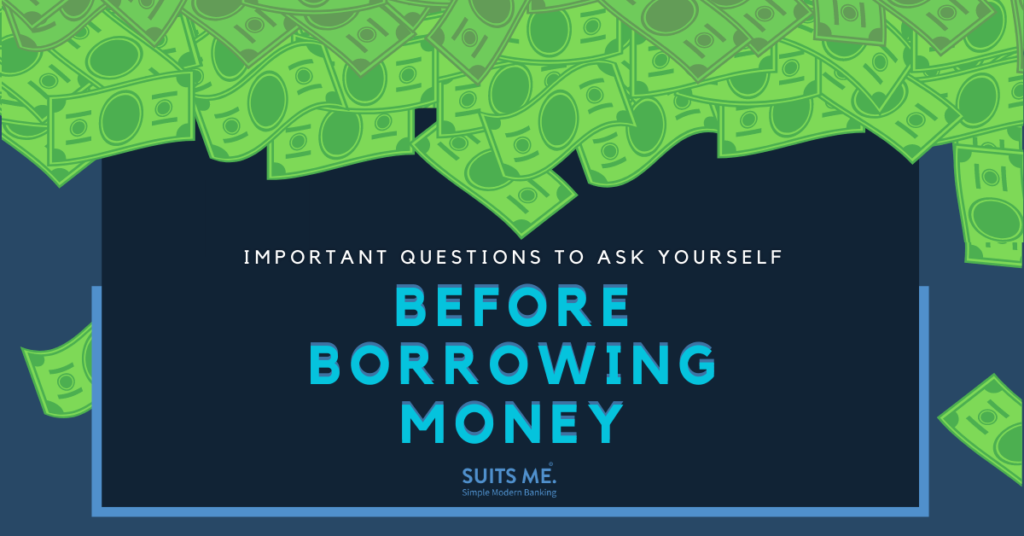
It’s not uncommon for people to borrow money by taking on new debt in an emergency, to purchase large items or pay for a special occasion. Some people also find that they borrow money to tide them over until their next payday, which is where problems can occur.
Before you borrow any money, there are some important questions you should ask yourself to ensure you’re making a sensible decision that won’t impact your financial future.
Can You Make the Repayments?
Probably the first and most important question is whether you can afford to pay back the money you borrow. It’s important that you’re honest with yourself here as you don’t want to get into any financial difficulties in the future.
Ask yourself whether the repayments will interfere with your finances in the future. Will you still have enough flexibility for any extra outgoings during the month? If it turns out that repaying the debt is putting restrictions on other aspects of your life – such as seeing friends, taking a vacation or paying for shopping – you may come to regret the initial purchase.
If you’re unsure about whether it will affect your finances, a popular way of measuring how much debt you can afford is by using the debt-to-income ratio, which basically means you don’t want any of your debt (including mortgage, rent and car repayments) to be more than 25% of your income.
How Fast Can I Pay it Off?
If you do decide to borrow any money, it’s worth evaluating how quickly you’ll be able to pay it off. Interest payments tend to get in the way of building our personal wealth and growing our savings pots. Before filling out an application, you will need to be clear of all the terms and conditions and how much interest you’re expected to pay back.
Making just the minimum monthly payment is not always an ideal option as you’re only paying back the interest and not clearing the balance. You should aim to pay off any debt as quickly as possible by budgeting and making bigger monthly repayments than required to avoid paying back lots of interest.
Am I Rushing into this Purchase?
Is it temptation causing you to want to make an unaffordable purchase? As a rule, if you see something you want to purchase like the latest pair of trainers or smartphone a good way to prevent yourself from rushing into any big financial decisions if by waiting two weeks before parting with your cash.
Once two weeks have passed, and you still want to make the purchase then it’s worth considering. Take your time to shop around, use discount codes where possible and shop second hand for a cheaper alternative to brand new.
What Happens if my Financial Situation Changes?
Okay, so this is where you need to examine your financial situation and assess what would happen if you lost your source of income.
With the tough economic climate and job losses occurring across the globe, you need to assess how secure your income really is. You should have at least three months income set aside in an emergency or rainy day fund, although for most people this is not the case.
Do you have a spouse, partner or family member who could help you out if you do face money troubles? If you’re single or live in a one-income household, you especially need to be careful about taking any extra debt on.
As you may be aware missing any debt repayments can severely impact your credit score so depending on the industry you work in, it’s worth considering that a poor score may hinder your ability to get a job.
A Quick Summary Surrounding Debt
Unless you’ve always been financially secure, accruing certain debts is unavoidable. So, it’s normal to feel stressed if you know you’ll struggle to make an upcoming repayment.
To keep track of any debts you may have, it’s important you have a solid budget in place and make a new repayment plan if your financial situation changes. Putting money aside in a rainy day fund will give you a bit of breathing room when you may need it most.
If you do find you’re struggling to pay your bills, you will need to contact the lender as soon as possible before the situation gets out of hand. There are many debt advice services that can support you if you find you’re struggling with your finances and debt repayments but before you get to this stage it’s always worth asking yourself the above questions before taking on any new debt in the first place.





